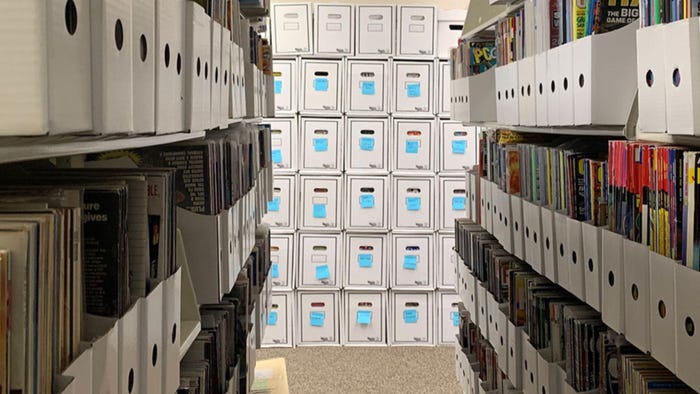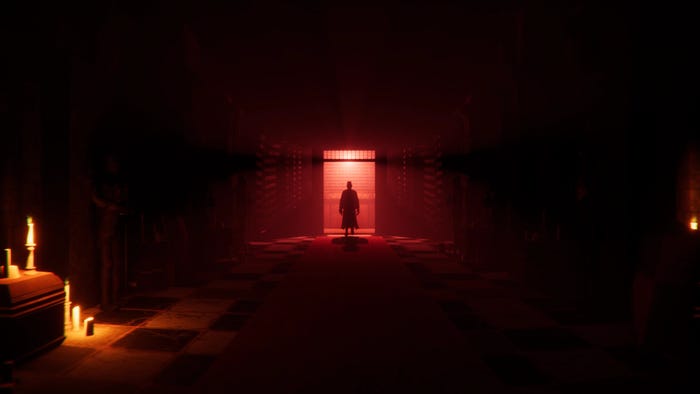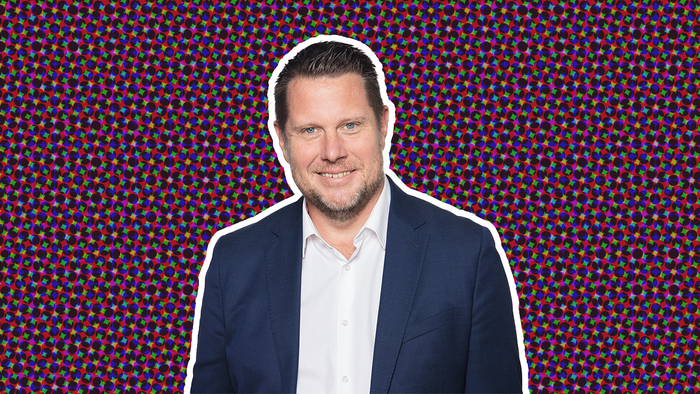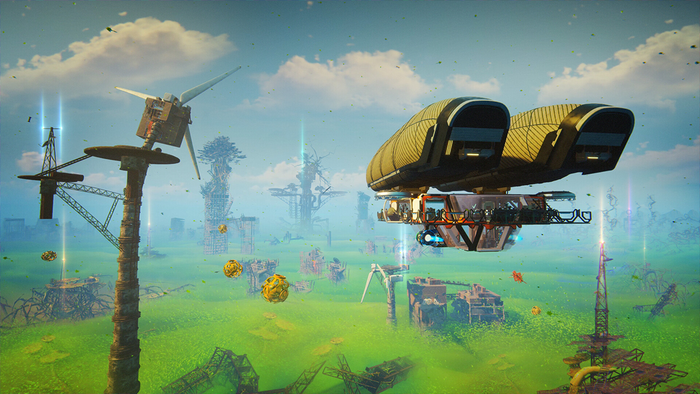
Featured Blog | This community-written post highlights the best of what the game industry has to offer. Read more like it on the Game Developer Blogs.
What does turning fifty in game development mean to me? I can’t imagine a life that doesn’t involve making games. Over the years, I’ve grown and changed--and I’m nowhere near done yet. As an industry, we can grow and change too.

I turned fifty today.
When I realized a few months ago that I’d hit that milestone this year, I joked with my boyfriend that “The only thing worse than being a woman game designer is being a fifty-year-old woman game designer.” After the words came out of my mouth, I realized part of me wasn’t joking. I debated whether to say in public that I’m fifty years old, and what effect that might have on my career.
I was born into a world where video games didn’t exist, at least not for the average person. I was seven when Pong was released, and twelve when the first Atari console came out. I was seventeen when I played Adventure on my TI/99-4A and it changed my life.
Now, after over twenty years of game development, I look around and see many of the people working alongside me when I started are no longer in the industry. I hear folks ten years younger say things like, “I’d leave game development right now if I knew another way to make a living.” Being a game developer at fifty feels like surviving a strange kind of adventure, a great endurance test in search of some form of digital enlightenment.
Part of that feeling comes from the tremendous toll game development takes on your life. I’ve relocated eight times to follow the work. I’ve had five game projects cancelled, including my very first one, each after at least a year of work. I’ve spent probably a quarter of my twenty two years crunching. My experience is not unusual: Greg Wondra also wrote about it in Death of The Game Designer here on Gamasutra.
So what does turning fifty in game development mean to me?
Our culture has a history and foundation of being obsessed with the new. It’s only in the last few years that Let’s Plays have started highlighting games of the past, and that pixel or flat-shaded art styles have come back into style as “retro.” This translates into what we consider our “core” audience, which stays young even as we age. It even translates into our choice of tools and platforms: we're always looking for the next big thing.
And it’s not just in the games we make--it’s in our workplaces too. Game development has always had an uncomfortable relationship with age and experience. It’s common for someone fairly young to rise quickly, whether by starting a company or working for an employer. That means you have people in management and leadership roles who might be asked to manage someone many years older. It's one of the most common things I hear when older developers chat about hiring experiences: “Everyone I talked to during the interviews seemed really awkward about my age, and they ended up saying I might not be a ‘cultural fit.’”
How do we resolve the awkward feeling, that sense of “it feels weird to tell this much older, more experienced person what to do?” Well, let’s start by agreeing that neither leadership nor management is all about “telling people what to do.” That very concept means you’re closing a door to learning from other people, especially people who have been around long enough to have made many mistakes--and are offering, right now, to help you avoid making them again.
Before you think the burden is all on companies and younger people, though, there’s a flip side. Game development is in many ways like marriage. It requires effort, commitment, and diligence. You can’t assume the status quo is fine. You can’t take for granted that the interactions and experiences that built your relationship are enough to fuel it forever. People change over the years, so do games, and does the process of building them.
There’s no getting around the fact that this is a passion-driven industry--and it needs to be. Keep in mind that passion isn’t synonymous with crunch. Managers who conflate those two ideas are taking advantage of us. What I’m saying is that the drive to make something great, the urge to entertain an audience, is at the very heart of what we do. Without that passion, we’re just assembling parts.
Yes, staying relevant, relocating, the day-to-day stresses of creative technical work can all be exhausting, especially on top of… well, life itself. Sometimes it seems like game dev does everything it can to try to make you quit. So why am I still here?
I said in my part of the #1reasontobe panel at GDC last year that I’d bet everyone in the audience felt like making games is what they were here on earth to do. I’d say the same thing for everyone reading this post. You feel it, in your heart. You have something to build, something to say, or you want to be a part of creating something that has the power to make a difference in people’s lives--even if that difference is just a moment’s entertainment.
How am I so sure you feel this way? If we didn’t feel in our hearts that we’re here to make games, we wouldn’t put up with so much bullshit to do it for a living. That’s especially true for those of us in game development for the long haul. Being happy in game development really is the holy grail. And I can tell you it exists.
I can’t imagine a life that doesn’t involve making games. Over the years, I’ve grown and changed--and I’m nowhere near done yet. There are so many things left to do and see, and so many games I want to help build. I have more ideas than I could possibly build in a lifetime. Colleagues continually surprise and delight me with their innovation. And there are so many topics and interactions and control methods and stories and characters and reflections on life that I haven’t experienced yet because no one has built them. Maybe someone is out there building those games right now. Maybe it’s you.
Lately you hear more about the differences between us than what we all share. We’ve been adding to the inherent difficulty of our individual, personal quests by choosing to fight rather than supporting each other. We’re losing sight of the fact that, when we work together, we can build great things. Just as I’ve grown and changed over the last twenty two years, I believe we can grow and change as an industry, too. I’ve watched us do it, time and time again, as we dealt with one challenge after another.
We can overcome this one too--remember who we are. We greet technical and creative challenges with determination and zeal. We love hard tasks. We thrive on thinking outside the box. We work tirelessly to improve our systems and build a better experience for our players. Now it’s time for us to work together to build a better experience for our fellow game developers.
After all, regardless of game genre or platform, regardless of discipline or development tools, our shared devDNA binds us: we’re digital siblings, underneath our differences. Like all siblings, we don’t always agree with each other. We take different paths in life, and make different choices. But there’s room for all of us in this family and, in fact, our workplaces and our games get more interesting as our family diversifies and changes.
When I feel worn down or tired, when the stress is eating away at me, when I wonder why I’m still here, I take a minute to remember why I fell in love with games in the first place--that magic moment when I first saw the opening to Adventure play out across the television screen and realized that I, too, could create worlds. Rekindle your relationship--spend some quality one-on-one time with your tools. Game jams are a great way to fall in love with game development all over again. I highly recommend the Ludum Dare competitions. It’s worth blocking out a weekend to feel renewed about yourself, your life, and this sometimes difficult path you’ve chosen for yourself.
So how am I’m celebrating my 50th birthday? I’m about to get on a plane and fly to Chicago for Train Jam. I’ll be making a game on the 52-hour train ride to GDC in San Francisco. Like most game development, it will involve awkward moments, long hours, stressful stretches praying for creative insights, lots of focused hard work, and many many mistakes.
I wouldn’t have it any other way.
About the Author(s)
You May Also Like









